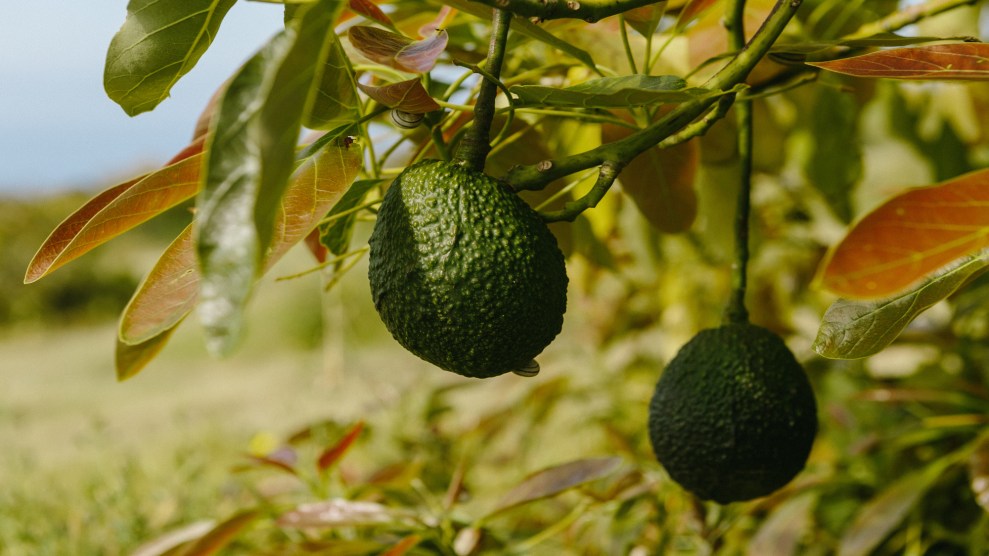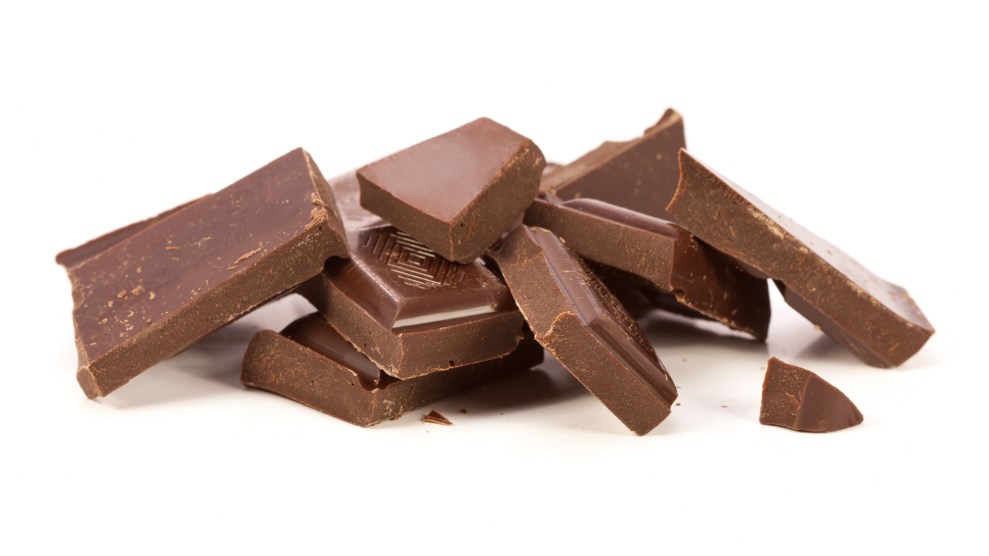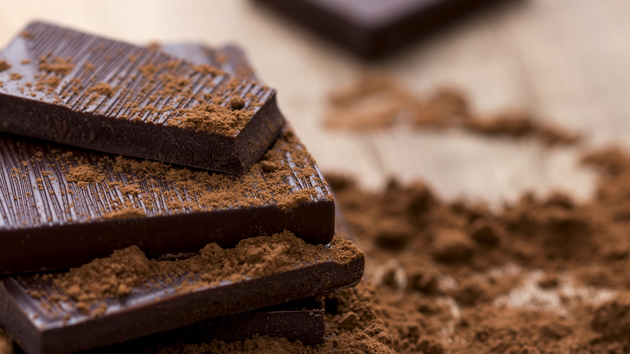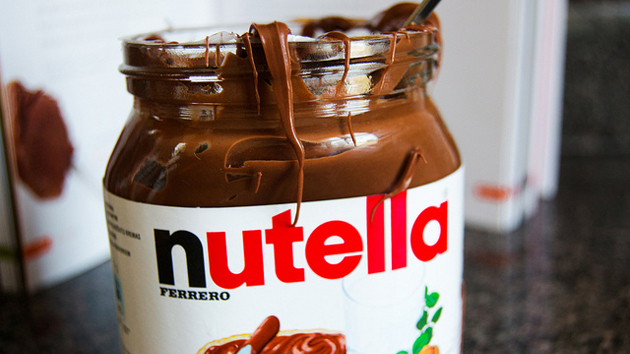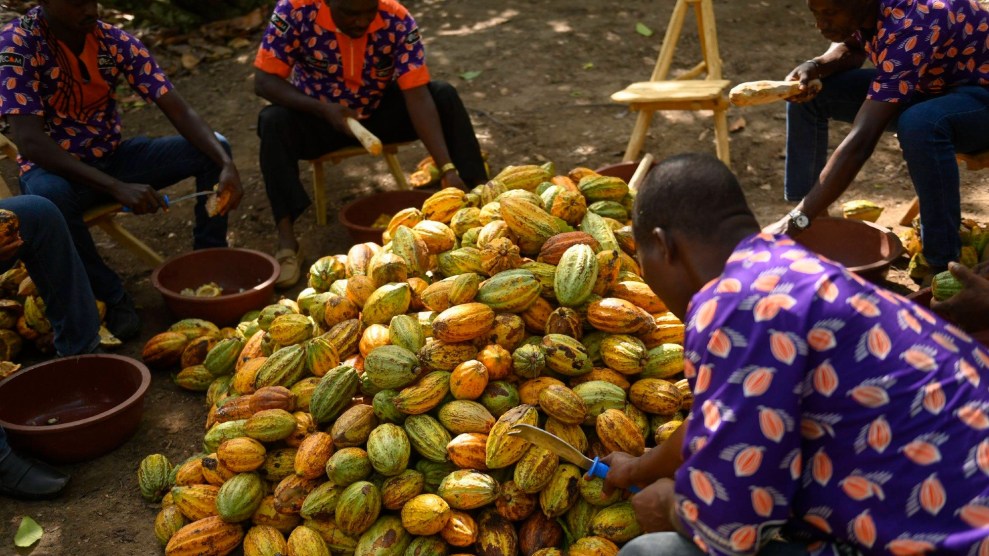
Cacao farmers on the Ivory Coast, March 2024.Imago / ZUMA
This story was originally published by the Guardian and is reproduced here as part of the Climate Desk collaboration.
Around the world this holiday weekend, people will consume hundreds of millions of Easter eggs and bunnies, as part of an annual chocolate intake that can exceed 18 pounds for every person in the UK, or 11 pounds in the US and Europe. But a global shortage of cacao—the seed from which chocolate is made—has brought warnings of a “chocolate meltdown” that could see prices increase and bars shrink further.
This week, cocoa prices rose to all-time highs on commodity exchanges in London and New York, reaching more than $10,000 a ton for the first time, after the third consecutive poor harvest in West Africa. Ghana and Ivory Coast, which together produce more than half of the global cacao crop, have been hit by extreme weather supercharged by the climate crisis and the El Niño weather phenomenon. This has been exacerbated by disease and underinvestment in aging plantations.
The poor harvest has left chocolate producers scrambling to secure their supply, with many warning of more price rises and potential reductions in the size of bars and sweets. A spokesperson for Nestlé, which owns chocolate brands such as KitKat, Smarties and Quality Street, said prices for consumers may need to increase after cocoa prices tripled in a year.
Hedge funds have made major bets on the price of the commodity this year, with speculators gambling more than $8 billion that prices would continue to rise, according to the Financial Times. But none of the money will make it to smallholder producers in West Africa, with Ghana and Ivory Coast having already sold this year’s crop through a cartel, leaving many farmers disgruntled.
Along with coffee, tea and bananas, cacao is one of the household staples threatened by global heating, with researchers scrambling to find wild varieties that are more heat and drought-resistant and able to withstand future conditions. However, unlike many of the world’s crops, much of the cacao supply is produced by smallholder farmers, many of whom are struggling to afford to replace ageing trees and buy fertilizers.
“Cocoa prices have reached record levels on the international market. Paradoxically, this does not mean higher incomes for producers,” said Amourlaye Touré, a senior adviser at the NGO Mighty Earth. “The record cocoa prices will benefit the cocoa-producing countries themselves little, as the raw material is transformed into a finished product after being exported.”
Martijn Bron, a former head of cocoa trading for the commodity giant Cargill, told the Guardian that the world was not running out of chocolate, but said prices could remain high for some time.
“There is a large shortage of fresh cacao beans. Normally there is a global crop of about 5 million tons. Now it’s about 0.5 million tons less,” he said. Unlike other commodities such as soya beans or wheat, “you cannot just plant more cacao trees and expect production to increase the following years—because they are trees,” he said.
“The market is now nervous about whether this is a one-off perfect storm or it’s structural. If it’s structural, that’s a problem because it means that you cannot do something about it on the supply side. It could take five-plus years for supply to recover,” he said.
